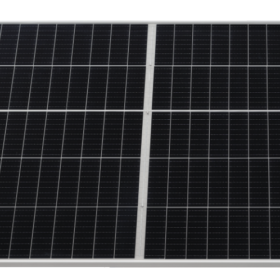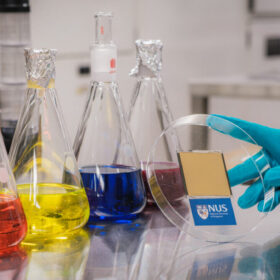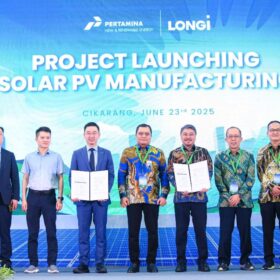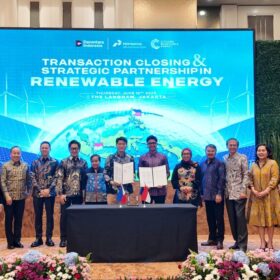$9.4 billion vertically integrated battery plant breaks ground
China-headquartered battery giant Contemporary Amperex Technology (CATL), together with a subsidiary and partners have officially broken ground on a vertically integrated battery manufacturing and recycling facility in Indonesia.
Risen hits 740 W average for mass-produced HJT module
Risen Energy says it has achieved an average power output of 740 W for its mass-produced heterojunction solar module, with certified cell efficiency of 26.61% and module efficiency of 24.81%, according to China’s Fujian Metrology Institute. Encapsulation losses were limited to 1.8%.
Malaysian giant teams with Tasmanian landowners on 1.2 GW portfolio
Malaysian infrastructure giant Gamuda is taking the next step in its Australian growth plans, partnering with landowners in central Tasmania to co-develop a 1.2 GW portfolio of large-scale renewable energy generation and storage projects.
Tongwei achieves 91.7% bifaciality factor for 722 W TOPCon solar module
The Chinese manufacturer said the result was confirmed by TÜV Rheinland. It was achieved through a sunken pyramid structure that reportedly achieves selective-texture on the non-electrode area of rear-side and a zebra-crossing passivation contact structure that is said to ensure excellent passivation.
SERIS achieves world record efficiency of 26.7% for perovskite-organic tandem solar cell
The tandem device is based on a bottom organic cell that can achieve a power conversion efficiency of 17.9% and a high short-circuit current density of 28.60 mA cm2. Furthermore, it uses a top perovskite solar cell with an open-circuit voltage of 1.37 V and a fill factor of 85.5%.
Sinovoltaics tracks 86.5 GW of module output capacity for Southeast Asia
PV module manufacturing capacity in Southeast Asia has reached 86.5 GW across 61 active sites, according to Hong Kong-based quality assurance firm Sinovoltaics. The figures come from the company’s latest “Southeast Asia Solar Supply Chain Map” report.
JinkoSolar achieves world record efficiency of 27.02% for TOPCon solar cell
The Chinese manufacturer said the result was certified by China’s National Photovoltaic Industry Measurement and Testing Center (NPVM).
Longi, Pertamina begin work on 1.4 GW solar cell, module factory in Indonesia
Chinese solar manufacturer Longi and Indonesian state-owned energy company Pertamina have started construction on a 1.4 GW solar cell and module production facility in West Java, Indonesia.
GoodWe releases 112 kWh storage system for C&I solar
GoodWe has launched a 112 kWh battery energy storage system for commercial and industrial solar projects, featuring 96% round-trip efficiency and a 6,000-cycle lifespan. The system allows parallel connection for up to 450 kWh of total capacity.
Indonesia’s Pertamina secures stake in Citicore Renewables
Indonesian state-owned energy company Pertamina New & Renewable Energy has acquired a 20% stake in Philippine solar developer Citicore Renewable Energy Corp. for about $186 million, with both companies planning joint investments in solar and other renewable projects in Indonesia.















